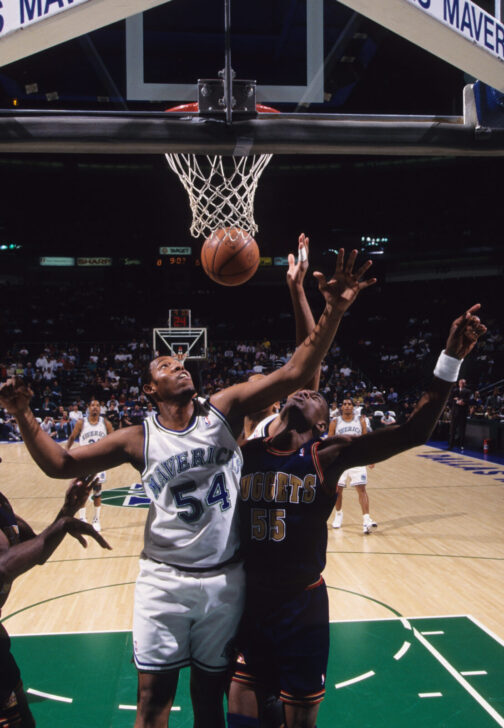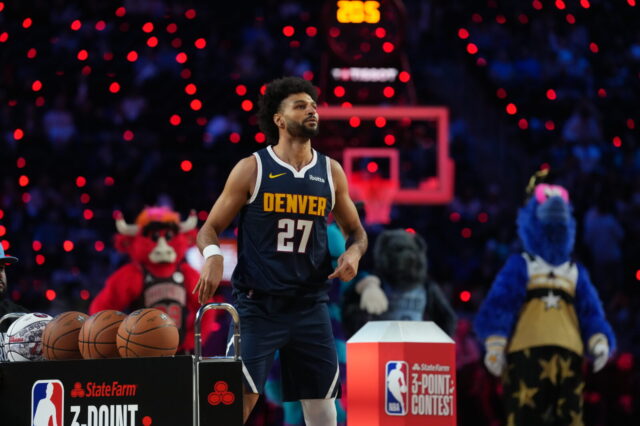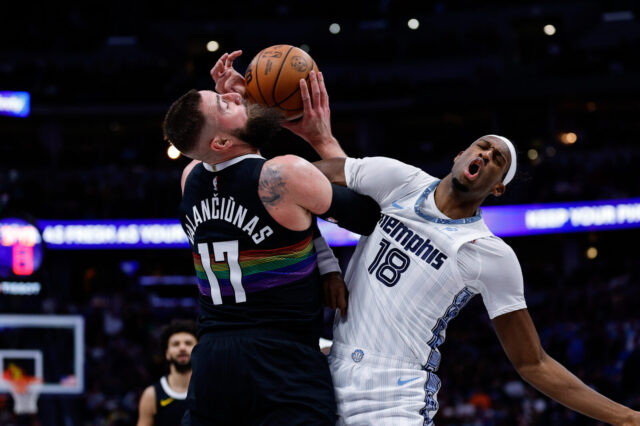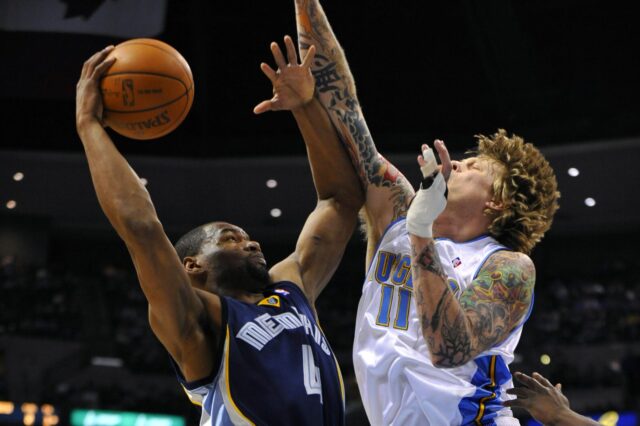Part I: Screw Up the Lottery Balls
You could start the story of Nugglife at any number of points. For me, it begins the night of April 19, 1997, when the Denver Nuggets tipped off their last game of the season at McNichols Arena versus the visiting Dallas Mavericks. The Nuggets came into the game with a record of 20-61, tied with the San Antonio Spurs for the third worst record in the NBA. For all of us who were fans of lottery-bound teams that season, anticipation centered around a big man at Wake Forest named Tim Duncan. He was a consensus number one overall pick. The hype was that he could instantly change the fortunes of whatever team was lucky enough to win the lottery.
And so it was on that April night that Nuggets forward Tom Hammonds scored 24 points, pulled down eight rebounds, and dished out five assists to lead the team to a 100-95 win. Dave Krieger‘s story about the game in the next morning’s Rocky Mountain News mentions that the Nuggets were motivated by having felt abandoned by their front office at midseason. He then quoted Hammonds on his feelings about what the victory did for the franchise’s lottery odds: “Good. I don’t care… If we can win and screw up the lottery balls, that’s what we want to do.”
The Nuggets ended the season with a record of 21-61. The next night, the Spurs lost at home to the Houston Rockets to finish 20-62. Two months later at the draft lottery, the Spurs leapfrogged up to the number one pick, and the Nuggets tumbled to number five.That fifth pick was used on Tony Battie, who’d be nicknamed “El Busto” by coach Dan Issel and be traded away before his second season. And of course, the Spurs took Tim Duncan, who lived up to every single bit of the hype and then some, who led them to their first championship in his second season, and who retired after nineteen years as a Spur, with five championship banners hanging in the San Antonio arena.
So April 19, 1997 is where the story begins for me. The story of NuggLife. And there was so much more to come. Like for instance: The worst 82-game regular season record in NBA history belongs to the 1972-73 Philadelphia 76ers, who finished 9-73. The Nuggets spent much of their 1997-98 season on pace to do even worse. I kept an eye on this in the newspaper, not bothering to watch any games. My fandom had been cemented a few years before, during that glorious first round of the 1994 playoffs, but fortunes had changed alarmingly quickly, and now I was just fearful of great embarrassment. The Nuggets were 2-18 after the first 20 games, and 3-38 at the halfway mark. Finally, on March 17, 1998, they won their second road game of the season against the Wizards to improve their overall record to 9-58, assuring they could do no worse than tie the 76ers record. And then on March 27, they beat the Warriors at home to get their 10th win. A home win against the Kings on April 9 would be their final win of the season, ending 11-71. It struck me as pathetic that I felt so relieved.
Issel had done some good work in his first stint as the Nuggets’ coach, including that spectacular first round upset in 1994. It was easy to root for him, after his many years of playing for the team. But his second stint as a coach was disappointing, and ended in true NuggLife fashion early in the 2001-02 season when, at the conclusion of a Nuggets home loss, a TV camera caught him on his way off the court engaging with a heckling fan and uttering a racist remark. It was a new low point for the franchise, stumbling aimlessly through a string of losing seasons and having this former great player, one of the few with his retired jersey number hanging in the rafters, dismissed unceremoniously for such shameful behavior. We’d have called it NuggLife back then, but the term didn’t exist yet.
Big changes were just around the corner, though. The following season they’d once again be in a race to the bottom of the standings, with a big lottery prize hanging in the balance.




